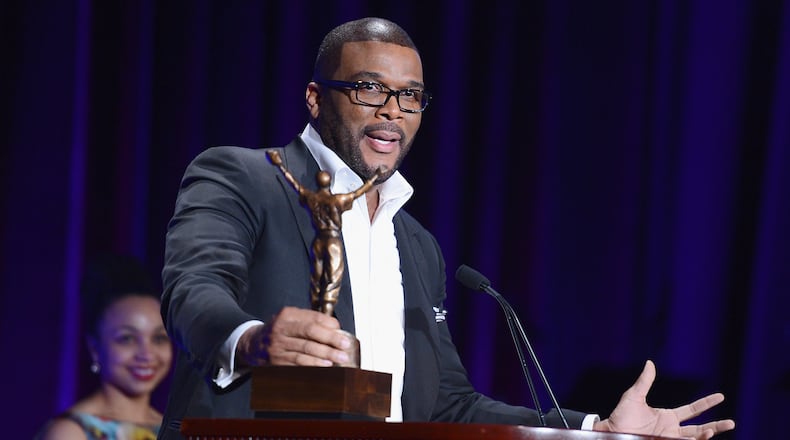By RODNEY HO/ rho@ajc.com, originally filed Monday, January 4, 2016
Atlanta media mogul Tyler Perry rarely does interviews with anybody not named Oprah Winfrey. So I was shocked to see him sit down and talk to a magazine features writer for Vulture and New York magazine named Rembert Browne.
The profile covers plenty of familiar territory. His rags-to-riches story. The moralistic Christian plays that helped lead to his films and TV shows. Madea. Spike Lee calling his work "coonery."
One thing I didn't know: he lives in a 17-acre mansion on West Paces Ferry Road once owned by a long-time segregationist Moreton Rollston who owned an Atlanta motel that refused to integrate. Perry gets great satisfaction out of this. "To have this property was such poetic justice," Perry told Browne.
As a black man, the author admitted Perry's work had caused him anxiety over the years: was he perpetuating stereotypes or simply entertaining the masses?
It comes down to the question of who gets to decide what's good for black people. Should all kinds of blackness be shown, or should its representation be curated? To Perry, no one should have the authority to make that call. To others, however, there is a clear line between what's good for "us" and what isn't. Much of the backdrop of the intellectual debates between scholars like Booker T. Washington and W.E.B. DuBois came down to this, too, whether good fortune and success is dependent on some approval from whites, as well as on using a group of select blacks to represent the whole. We're a century removed from those thinkers — but in some ways, we're still debating those ideas, and Tyler Perry's work is at the center of it.
Browne also has Winfrey, whose network is doing well in part because of Perry's shows, and Cicely Tyson sing his praises.
And Perry thinks the appeal of his shows is more about class, than race, that he appeals to a lower-income class that identifies with his comedy. He still connects with that world no matter how wealthy he is. “There are so many people that society says their stories don’t matter because they’re poor," Perry says to Browne.
About the Author
Keep Reading
The Latest
Featured




